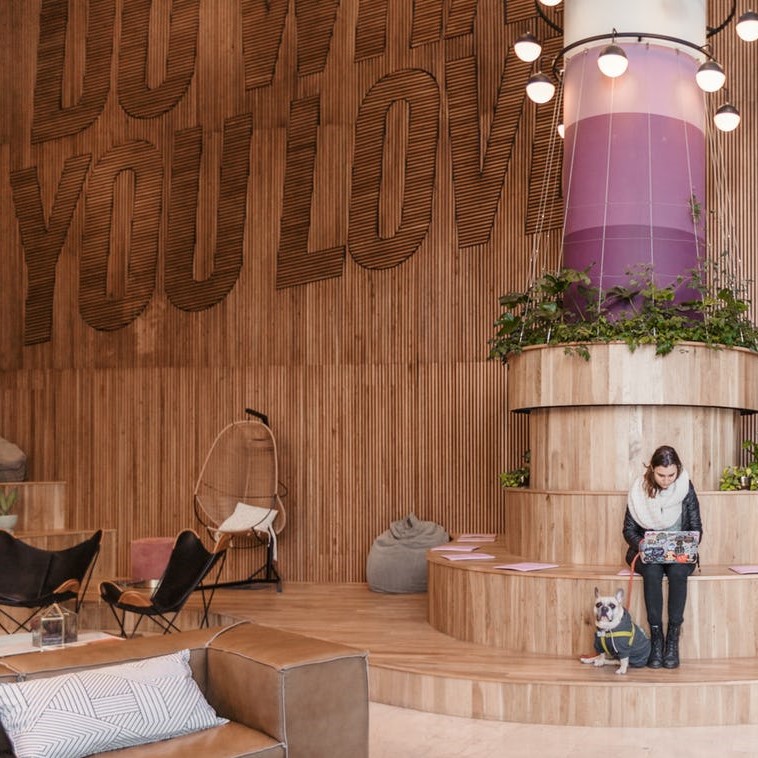July 15, 2019
Search Results for: flex
July 10, 2019
Vast majority of workers want more flexible hours
by Neil Franklin • Flexible working, News, Wellbeing
![]() The overwhelming majority (84 percent of workers) would like their organisations to offer more flexible hours of work, whether that’s time to suit personal needs, or the occasional early finish, according to a new report from Totaljobs. While employees have the legal right to request flexible working from their employer regardless of their existing contract, some companies have already built greater flexibility into their employer offering. Some go one step further with “agile working”, whereby employees can work from any location, at any time, by utilising appropriate technology. (more…)
The overwhelming majority (84 percent of workers) would like their organisations to offer more flexible hours of work, whether that’s time to suit personal needs, or the occasional early finish, according to a new report from Totaljobs. While employees have the legal right to request flexible working from their employer regardless of their existing contract, some companies have already built greater flexibility into their employer offering. Some go one step further with “agile working”, whereby employees can work from any location, at any time, by utilising appropriate technology. (more…)
July 8, 2019
Flexible office demand in Paris almost double the global average
by Neil Franklin • Coworking, News, Property
 Demand for flexible office space in Paris is almost double the global average, according to a report by Instant Offices. With demand for office space on the rise in Paris, serviced offices have seen a 26 percent increase while hybrid space has seen a 23 percent increase. While the city ranks fourth globally by the size of supply, Paris is considered to be one of the largest flexible office markets in Europe and ranks among the top 10 best start-up cities in the world. Alongside New York, San Francisco and London, Paris also remains one of the most expensive places to rent a desk. Despite this, demand in the city is on the rise as more large businesses choose flexible offices over conventional leases. (more…)
Demand for flexible office space in Paris is almost double the global average, according to a report by Instant Offices. With demand for office space on the rise in Paris, serviced offices have seen a 26 percent increase while hybrid space has seen a 23 percent increase. While the city ranks fourth globally by the size of supply, Paris is considered to be one of the largest flexible office markets in Europe and ranks among the top 10 best start-up cities in the world. Alongside New York, San Francisco and London, Paris also remains one of the most expensive places to rent a desk. Despite this, demand in the city is on the rise as more large businesses choose flexible offices over conventional leases. (more…)
June 27, 2019
Bosses overwhelmingly in favour of flexible working
by Neil Franklin • Flexible working, News
 Businesses that fail to accommodate staff looking to set their own work schedule in some way will struggle to attract and retain talent, claims new research from Vistage. The research suggests that nearly two-thirds (73 percent) of UK CEOs and business leaders believe organisations that fail to offer flexible working to employees will face a struggle to attract talent. More than half (59 percent) of respondents said they’ve already written flexible working options into standard employment contracts. A further 36 percent say it’s either something they’re looking at or would consider in the future. (more…)
Businesses that fail to accommodate staff looking to set their own work schedule in some way will struggle to attract and retain talent, claims new research from Vistage. The research suggests that nearly two-thirds (73 percent) of UK CEOs and business leaders believe organisations that fail to offer flexible working to employees will face a struggle to attract talent. More than half (59 percent) of respondents said they’ve already written flexible working options into standard employment contracts. A further 36 percent say it’s either something they’re looking at or would consider in the future. (more…)
June 21, 2019
Flexible office revolution shows no signs of slowing
by Neil Franklin • News, Property, Workplace design
 The latest research from JLL, Disruption or distraction, where next for the UK flex market sector, claims that the real revolution of flexible office space lies in the variety of solutions now on offer and that the market has seen more changes over the last three years than the previous 30 combined as it continues to grow and evolve. JLL’s research claims that over the next five years more than 10m sq ft will be added to the stock in the key UK cities and flex space will account for over 8.5 percent of the total office stock by 2023. (more…)
The latest research from JLL, Disruption or distraction, where next for the UK flex market sector, claims that the real revolution of flexible office space lies in the variety of solutions now on offer and that the market has seen more changes over the last three years than the previous 30 combined as it continues to grow and evolve. JLL’s research claims that over the next five years more than 10m sq ft will be added to the stock in the key UK cities and flex space will account for over 8.5 percent of the total office stock by 2023. (more…)
June 12, 2019
Lack of flexible working risks talent exodus
by George Eltringham • Flexible working, News
 New results from Wildgoose’s Flexible Working survey suggests that a significant number of UK employees are seeking out flexible working to better juggle life both in and out of work, without compromising productivity. The latest findings follow on from the organisation’s other successful insights surveys exploring diversity & inclusion and mental health in the workplace. (more…)
New results from Wildgoose’s Flexible Working survey suggests that a significant number of UK employees are seeking out flexible working to better juggle life both in and out of work, without compromising productivity. The latest findings follow on from the organisation’s other successful insights surveys exploring diversity & inclusion and mental health in the workplace. (more…)
June 11, 2019
Over half of US workers offered flexible Fridays
by Marie Hillen • Flexible working, News, Workplace
 This summer, over half (55 percent) of US employers will offer employees the option to leave work early on Fridays or take the entire day off. The new survey by Gartner claims that so-called flexible Fridays are an example of the sort of perks organisations are offering to gain competitive advantage in attracting and retaining top talent in a labour market which features record low unemployment levels.
This summer, over half (55 percent) of US employers will offer employees the option to leave work early on Fridays or take the entire day off. The new survey by Gartner claims that so-called flexible Fridays are an example of the sort of perks organisations are offering to gain competitive advantage in attracting and retaining top talent in a labour market which features record low unemployment levels.
June 7, 2019
Flexible working held back by poor data
by Neil Franklin • News
 Many managers still rely on gut feelings and inadequate or flawed data to make important but potentially poor decisions about real estate and flexible working. That is the main conclusion of a new piece of research by flexible workplace specialist Abintra. Published in a new report, the study highlights how corporations are struggling to manage office space efficiently as the trend towards agile and flexible working gathers momentum.
Many managers still rely on gut feelings and inadequate or flawed data to make important but potentially poor decisions about real estate and flexible working. That is the main conclusion of a new piece of research by flexible workplace specialist Abintra. Published in a new report, the study highlights how corporations are struggling to manage office space efficiently as the trend towards agile and flexible working gathers momentum.
June 6, 2019
Flexible working may not enhance productivity
by Marie Hillen • Facilities management, Flexible working, News, Workplace
 The majority of office employees (84 percent) believe good relationships with colleagues boost their quality of work, yet nearly three quarters (70 percent) admit to not knowing the people they work with very well, claims a new survey from Nespresso Professional. The study suggests that changing office environments and flexible working practices are not improving employees’ relationships with co-workers, or their creativity and output. (more…)
The majority of office employees (84 percent) believe good relationships with colleagues boost their quality of work, yet nearly three quarters (70 percent) admit to not knowing the people they work with very well, claims a new survey from Nespresso Professional. The study suggests that changing office environments and flexible working practices are not improving employees’ relationships with co-workers, or their creativity and output. (more…)
May 22, 2019
The new normal of flexible work transforming workplaces
by Marie Hillen • Facilities management, Flexible working, News, Technology, Workplace
 Digital innovations, and in particular, cloud computing is enabling increasing numbers of employees to work remotely and flexibly. This means the central company workspace is rapidly becoming an administrative hub, rather than a traditional central focus where everyone gathers during set hours. This is according to Condeco’s new research paper, The Modern Workplace 2019: People, places & technology (registration) which claims that 41 per cent of employers already offer remote working, while 60 per cent now allow employees to set their own flexible hours. (more…)
Digital innovations, and in particular, cloud computing is enabling increasing numbers of employees to work remotely and flexibly. This means the central company workspace is rapidly becoming an administrative hub, rather than a traditional central focus where everyone gathers during set hours. This is according to Condeco’s new research paper, The Modern Workplace 2019: People, places & technology (registration) which claims that 41 per cent of employers already offer remote working, while 60 per cent now allow employees to set their own flexible hours. (more…)
May 17, 2019
Flexible working for parents greatest challenge for SMEs
by Mark Eltringham • Flexible working, News
 Paid leave for new parents is a financial and operational challenge for 90 percent of UK SMEs, according to the findings of new research into the challenges faced by working women and their employers. The first ever Women in Business survey also claims that offering flexible working and covering the cost and resource of maternity and paternity leave is an even bigger concern for SMEs, with 96 percent of board level executives saying it’s a significant challenge for their business. (more…)
Paid leave for new parents is a financial and operational challenge for 90 percent of UK SMEs, according to the findings of new research into the challenges faced by working women and their employers. The first ever Women in Business survey also claims that offering flexible working and covering the cost and resource of maternity and paternity leave is an even bigger concern for SMEs, with 96 percent of board level executives saying it’s a significant challenge for their business. (more…)

























June 26, 2019
Flexible working is the new measure of success
by Ben Chatfield • Comment, Flexible working